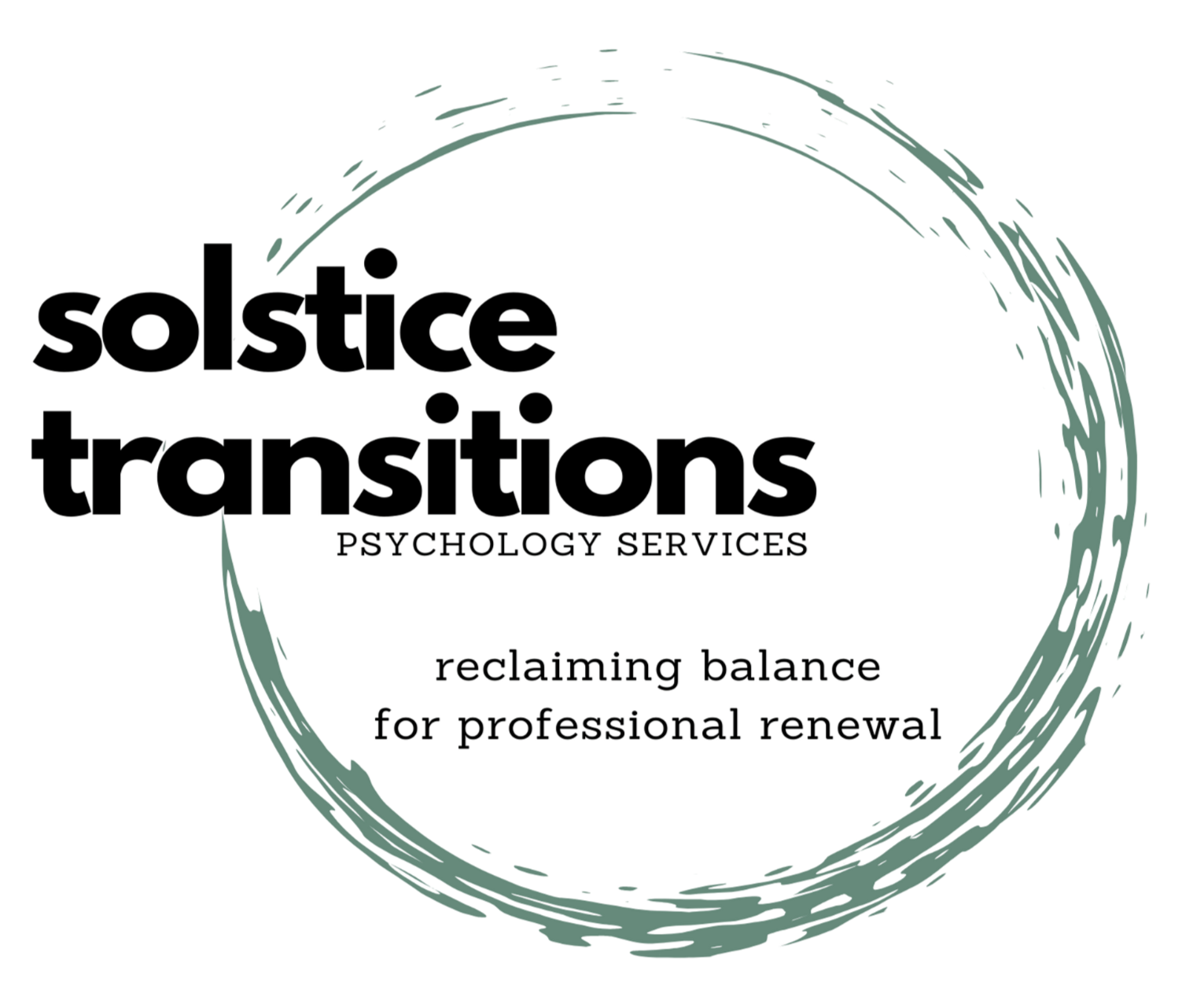
Therapy for professionals carrying too much, too long
Burnout. Moral Strain and Distress. Quiet exhaustion.
You don't have to figure it out alone.
Evidence-based therapy for professionals facing stress, decision fatigue, navigating moral ambiguity or distress, or questioning whether something in your work or personal life needs to shift.When you're the one holding everything together, solving problems, supporting others, and keeping things running - there’s rarely space to pause, let alone recalibrate.I help high-performing professionals make sense of burnout, moral distress, and quiet exhaustion before it turns into something unmanageable.Therapy can be structured, clear, and built for how you think. It’s a space to step back from the noise, sort through what’s weighing on you, and make decisions that reflect who you are, and not just what your role demands.
PSYPACT Authorized Telepsychology Services
If you’re here, something isn’t working.

Photo by ABHIJEET SINGH
You’re usually the one others count on. You lead, you manage, you troubleshoot. You’re used to handling high-pressure situations, thinking your way through problems, and doing what needs to be done, even when it’s hard.But lately, something has shifted. The pressure isn’t letting up, and your usual strategies don’t seem to work the way they used to. You’re tired in a different way...mentally, emotionally, and maybe even ethically. You might feel foggy, off-track, or disconnected from the reasons you used to care so deeply. Maybe your work is still getting done, but it’s costing you more. And if you're honest, you're not sure how much longer that model will hold.You’re not falling apart. You’re still showing up and doing what needs to be done. But your internal signals are changing.You may not be sure if therapy is the right step. That's understandable. But therapy is not just for breaking points, it's for the moment you realize that something needs attention before it fractures.
If that's where you are,
you’re in the right place.
When you’ve been carrying this much for this long, the signs don’t always look dramatic. They show up quietly: irritability, exhaustion, second-guessing decisions that used to feel clear. You might wonder if it’s just part of the job, or if you’re the only one feeling this way.You’re not.I work with professionals who operate in complex, high-pressure environments—people who are skilled at pushing through, but who’ve reached a point where pushing through no longer feels sustainable. Here's how this often shows up in the people I work with:
Overwhelm - When everything feels urgent and your brain won't turn off. You're stuck in constant mental load, and the small decisions feel taxing, the focus is harder to find.
Burnout - This isn’t just tired, it’s running on fumes. You may feel detached, numb, or increasingly cynical. The work still gets done, but at a steep emotional and physical cost.
Moral Ambiguity - You’re in roles where there’s no clear “right” choice. You’ve been navigating ethical gray areas for a long time...trying to make the best call with imperfect options and limited resources.
Moral Distress - You know what should happen, but you’re blocked...from above, by policy, or by the system itself. It’s an ongoing tension between what your values tell you and what your role allows.
Moral Injury - This goes beyond stress. Maybe you stayed silent when something felt wrong. Maybe you acted against your better judgment because you had no real choice. Now you're left with guilt, shame, or disconnection from your own integrity.
Transitions - Whether you're recovering from burnout, considering a career shift, or leaving a role or relationship that no longer fits, you're in a season of change. Even when change is necessary, it can feel disorienting.
You may be asking what still fits, what needs to end, or what comes next. Therapy offers space to step back, think clearly, and move forward with intention.
WHAT MAKES MY APPROACH DIFFERENT

Photo by Andreea Ch
Therapy That Respects the Weight You Carry
This isn’t therapy that assumes you’re broken. It’s therapy that understands how heavy it can be to move through constant complexity, responsibility, and quiet strain—especially when there’s been no time or space to process what it’s really costing you.Many of my clients lead quietly, think deeply, and show up even when it hurts. They’re used to solving problems, not sitting with them. But when they’re finally able to pause, something shifts.As both a psychologist and former healthcare administrator, I understand the emotional and systemic layers of burnout, moral stress, and ambiguity. I’ve lived through the tension of staying too long—and the hard, deliberate work of stepping away.That experience shapes how I work: with clarity, structure, and space for honest reflection; and without pressure, pretense, or unnecessary complexity.
I’m Dr. Thuy Boardman, founder of Solstice Transitions. Alongside my clinical psychology training and licensure, I also hold the Professional Certified Coach (PCC) credential with the International Coaching Federation, reflecting the breadth of my experience in leadership and professional development.Before launching this practice, I spent nearly two decades inside systems where pressure, complexity, and ethical tension were part of the daily landscape. I led teams, responded to crises, and made difficult decisions in environments where trade-offs were constant and clarity was rare. Like many of my clients, I carried the weight of both people and systems - holding things together even when the cost to myself was getting harder to ignore.Eventually, I had to ask the same questions I now help others explore: What is this taking from me? What am I no longer willing to trade? Letting go wasn’t easy. But it was the most honest leadership decision I’ve made.Now I support professionals who are navigating their own version of that turning point - the moment when continuing to push through stops feeling sustainable.Solstice Transitions exists for professionals who need a place to regroup, reflect, and realign. I help you sort through what’s no longer working, recover from the impact, and decide what’s next with integrity.
Serving Those Who Show Up
for Everyone Else

Photo by RDNE
Stress, burnout, and moral tension don’t always look like breaking down. Often, they build slowly and show up as irritability, trouble focusing, or a sense of detachment from work that once mattered. You’re still performing, still meeting expectations, but something feels off.I work with people who carry significant responsibility, often without acknowledgment or pause. They lead teams, solve complex problems, make high-stakes decisions, manage complex systems, and push through uncertainty. For a while, that model works. Until it doesn’t.Over time, the pressure, compromises, and emotional toll begin to surface. What once felt manageable starts to feel heavier, until you can’t push past it the same way anymore.I provide therapy for professionals facing burnout, moral distress, and the emotional toll of complex work environments. Many of my clients are leaders, clinicians, mission-driven staff, and high-responsibility professionals who have spent years operating under pressure—often without a break to assess what it’s costing them.Whether you're navigating ethical strain, decision fatigue, quiet exhaustion, or a major life transition, this work is designed to help you regain clarity, reconnect with your values, and make sustainable decisions about what comes next.
Here’s how I see it show up in the professionals I work with most:

Photo by RDNE
Healthcare Professionals and Clinical Leaders
Whether you're providing care or managing those who do, the emotional and ethical load is heavy. You're trained to be present and precise, but you're often expected to do more with less - less time, less staff, fewer resources.You may be caught between what you know is right and what the system allows. It’s exhausting to advocate for patients, support your team, and meet demands that don’t account for your own limits. Over time, that gap between values and reality starts to wear you down.If you're feeling disconnected from your work or wondering how much longer you can keep doing it this way, you’re not alone. That fatigue often isn’t just stress. It’s a signal that your integrity and well-being need attention.
Mission-Driven Professionals

Photo by Julia M Cameron
You came into your role with purpose. Whether you're in education, nonprofit, or community leadership, you believe in what you're doing. But the day-to-day reality may look very different from the vision that brought you here.You’re likely juggling unclear expectations, chronic underfunding, and internal politics that make it harder to deliver the impact you care about. You may feel stuck between your ideals and your limits. That tension builds over time, especially when you're expected to keep producing without real support.It can leave you questioning whether the work is still worth the cost - and that’s a question worth honoring.

Photo by Yan Kurkov
Executives, Analysts, and
Technical Professionals
Your work demands sharp thinking, strategic decisions, and constant results. You're used to being efficient, composed, and in control. But holding that role over time, especially when the stakes are high, comes at a cost.You might be managing teams, leading change, or making decisions where there is no perfect outcome. When there’s no room to slow down or acknowledge the emotional weight of what you carry, fatigue starts to set in.If you’ve started noticing you're not thinking as clearly, reacting faster than you'd like, or wondering how much longer you can sustain this pace, it’s time to pay attention to what that might be telling you.
Professionals in Transition

Photo by Tima Miroshnichenko
Sometimes the shift is external: a job loss, a new role, a restructuring, or an unexpected change in direction. Sometimes it’s internal: a quiet realization that what used to work no longer fits.Transitions can feel disorienting, even when they’re necessary. You may be reflecting on what you want to carry forward, what you need to let go of, and what a more sustainable future might look like.This is often where clarity begins: not from rushing into a new direction, but from making space to step back and think differently.
How therapy works at solstice transtions
Many of my clients wouldn’t have imagined themselves in therapy. They’re high-functioning, highly responsible, and deeply committed to their work and relationships. But they’ve hit a point where continuing to carry the pressure alone no longer works—and where stepping back, even briefly, becomes essential.Therapy doesn’t mean something’s wrong with you. It means you’ve reached a point where insight, structure, and expert support can help you get back to center and decide what needs to change.Therapy with me is focused, collaborative, and designed for people who value both reflection and action.You don’t need to have the right language. You don’t have to be in crisis. You don’t need to explain your resume or justify how hard things have been. You just have to show up.Our work might include:
Make sense of what’s happening beneath the surface - emotionally, professionally, and ethically
Identifying where stress, misalignment, or exhaustion have taken hold
Clarify what’s sustainable and what’s not
Exploring the emotional and moral impact of your environment
Strategizing around what’s next, including how to make changes without burning it all down
Define what recovery, recalibration, or change looks like for you
I’ll bring structure, tools, and a grounded understanding of high-pressure systems and professional realities. You bring your experience and a willingness to pause and take inventory.

Photo by PIXABAY
How We Work Together
All sessions are conducted virtually, providing a confidential and convenient space for reflection and progress. I offer flexible scheduling options to accommodate demanding professional lives.Our work begins by clearly identifying your goals—whether you're seeking relief from burnout, clarity during a life transition, or a stronger sense of direction. From there, I integrate evidence-based behavioral therapies and coaching-informed strategies to create a personalized path forward.
Session Details
Therapy appointments are 60 minutes
Sessions are held via secure, HIPAA-compliant video
Available to clients in 40+ states through PSYPACT authority
Most clients begin with weekly or biweekly sessions, depending on their needs
A free phone consultation is available to explore fit
Payment and Care Model

Photo by Niet Juhart
Solstice Transitions primarily operates as a direct-pay practice. This means your care is fully personalized, confidential, and free from insurance constraints. This approach ensures our focus remains on your specific goals, whether that's overcoming burnout, managing transitions, or achieving greater alignment in your life.What this means for you:
Personalized Care: Sessions are tailored to your goals, not shaped by insurance limitations.
Confidentiality: When using direct-pay, no diagnosis is required, and your records remain fully private.
Transparent Pricing: Clear, upfront costs with no surprise billing.
Reimbursement Support: Superbills available upon request for potential out-of-network reimbursement.
Limited Insurance Accepted: Aetna.
Therapy is an investment in your well-being. Whether you choose to pay directly or use your insurance, this model ensures our work remains focused on your values and priorities.
Session Services & Rates
$300 per 60-minute sessionYour first 1–2 sessions are dedicated to a comprehensive assessment to clarify your history, stress points, and desired outcomes. This ensures that every session is intentional and aligned with the results you’re seeking.Ongoing sessions provide structured, confidential time for deep reflection, recalibration, and strategic change.My approach integrates evidence-based psychotherapy with the practical tools of coaching to support sustainable transformation.Sessions can be scheduled weekly, biweekly, or at a customized pace that fits your professional and personal demands. For clients who prefer accelerated progress, I offer therapy intensives for focused, short-term, high-impact work.


